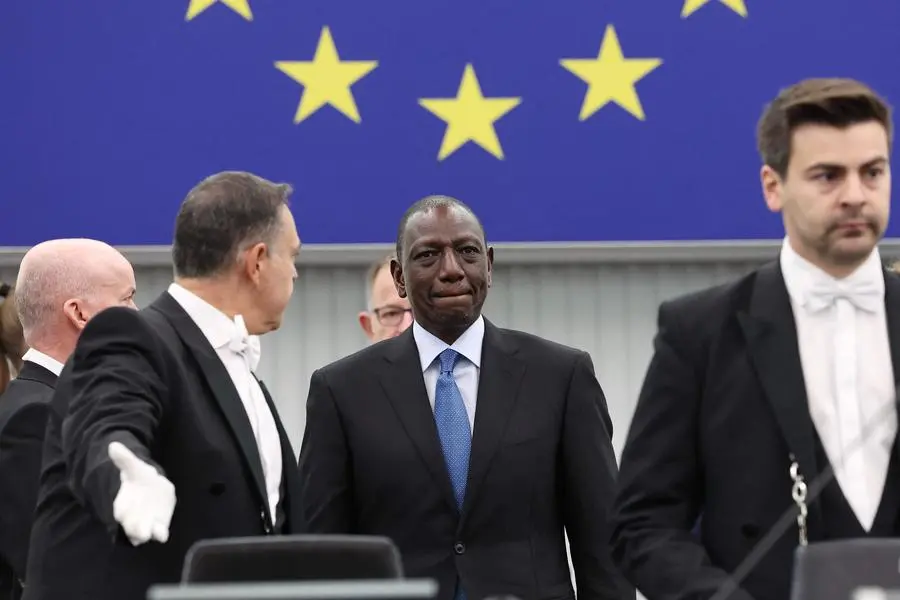PHOTO
Kenya is drawing up measures to tackle a flood disaster that has killed 70 people and driven tens of thousands from their homes, President William Ruto said on Saturday, describing it as an "emergency situation".
Kenya and neighbouring Somalia and Ethiopia, countries that are only just emerging from the worst drought in four decades, are now experiencing devastating flooding caused by torrential rainfall linked to the El Nino weather pattern.
Ruto said after holding talks with various emergency response teams that the cabinet would meet on Monday to discuss recommendations on how to manage the crisis.
"Unfortunately we have lost 70 people across Kenya because of these rains and about 36,160 households have been displaced so far," he said in an address from State House.
"Kenya is already soaked," he said, adding that the Meteorological Department was forecasting more rains, heightening the risk of further flooding.
"Therefore we need to prepare ourselves for the emergency situation that is going to ensue," he said.
Many roads, especially in the northern part of Kenya, have been washed away, he said, leaving trucks carrying food, medicine and fuel stranded.
He said the Kenya Defence Force had been called in to airlift supplies to marooned communities, while the government had made available 2.4 billion shillings (almost $16 million) to provide food to the displaced.
He warned there were emerging cases of cholera and malaria in some areas, and said Kenya's security was also being affected, without elaborating.
Ruto was widely chastised after saying last month that the East African country would not experience El Nino rains, only heavy rainfall that "would not be destructive".
Meanwhile, the International Federation of Red Cross and Red Crescent Societies and the Kenya Red Cross Society said they have launched an emergency appeal for around $20 million to help tackle the disaster.
"We are dealing with a situation where entire communities have either been submerged or marooned," Kenya Red Cross secretary general Ahmed Idris said in a statement on Friday.
"Roads and other critical infrastructure have been cut off, disrupting the delivery of vital supplies. We need to urgently provide food, clean water and medical supplies to avoid a humanitarian catastrophe."





















